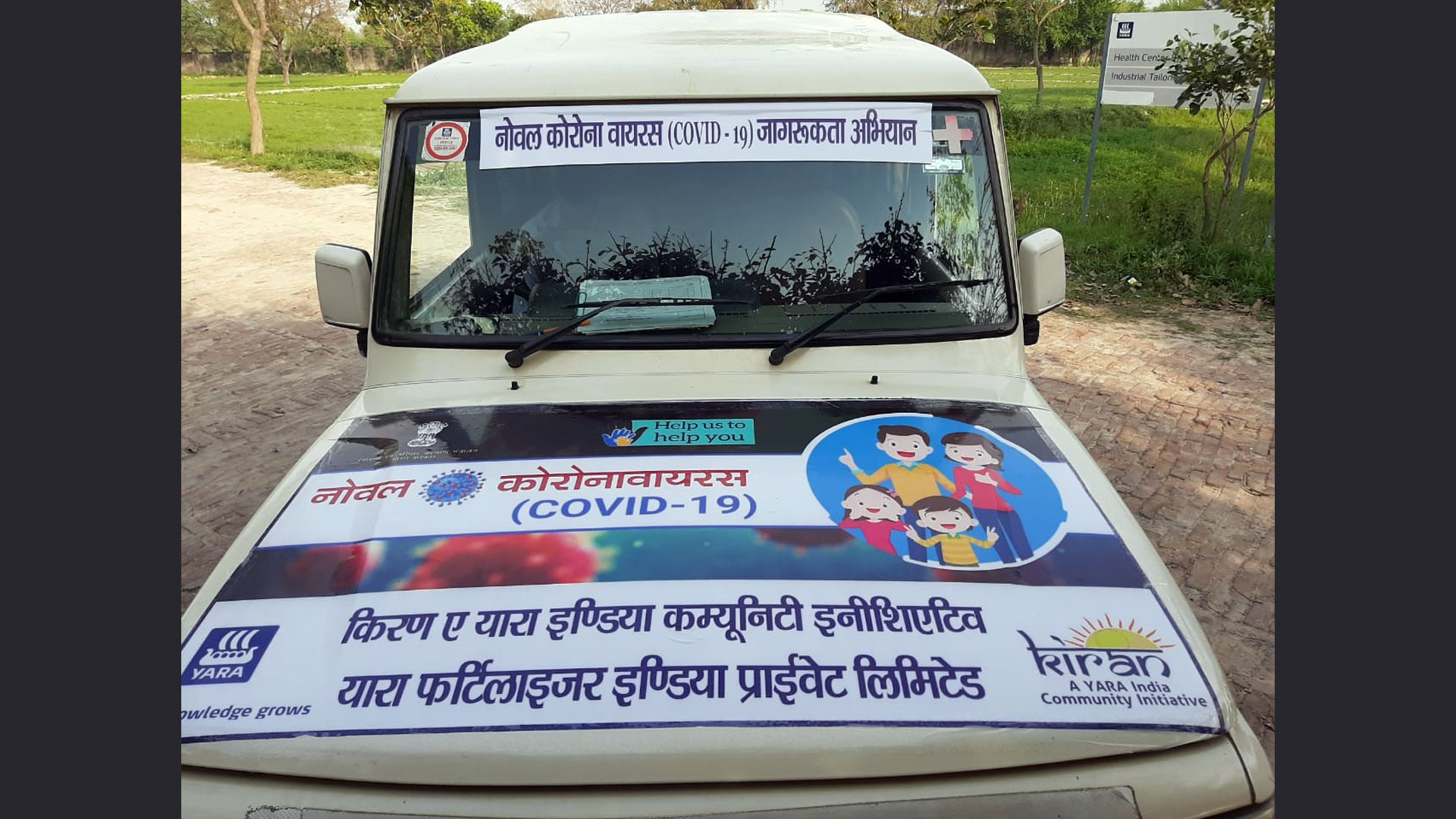About Yara Fertilizers India Private Ltd.:
Yara Fertilizers was founded in 1905 in Norway, Yara has a worldwide presence with sales to 160 countries. Yara delivers solutions for sustainable agriculture as well as the environment and is 36.2% owned by the Norwegian Government.
The company has been in India for over 25 years . In January, 2018 , Yara acquired Tata Chemicals 1.20 MN MT annual capacity urea plant located at Babrala in Uttar Pradesh , for USD 421 million , becoming the first foreign multinational company to invest in Indian fertilizer sector.
The Babrala plant in Uttar Pradesh was commissioned in 1994 and is the most energy efficient plant.
Yara conducts business in 15 states and employees around 650 people.
Yara works closely with Indian farmers, promoting a balanced crop nutrition solution that positively impacts yields and the quality of output.
Yara’s mission is both simple and very ambitious: To responsibly feed the world and protect the planet.
Corporate Initiative:
The entire globe is facing challenges in the times of corona virus pandemic, the spread of the virus has been unstoppable till now and has been affecting various sectors of the economy. Agriculture forms the base of the Indian economy and contributes largely to the development of the nation.
Agriculture is one of the major sectors of the Indian economy. It is the primary economic activity. Agriculture and our farmers are always the prime focus in Indian economy.
“Our farmers are pride of our nation” – PM Narendra Modi
“Agriculture is the backbone of Indian economy” – Mahatma Gandhi
Yara India is committed towards the safeguarding and development of the community, efforts have been put in through CSR activities in curbing the situation and its effects in the society.
Despite the Govt. of India notification on Agriculture – Farming and allied activities been exempted from the lockdown, there were lot of challenges to keep the operations running, like shortage of raw materials, labor, packaging, transportation , etc. However, with the strong support from the national, state and local administration, the company managed to operate without a single day break
- New Initiative: Online training for farmers: Yara leverages a variety of digital platforms to remain connected with the farmers across India. They have been able to support around 1,20,000 farmers during the first phase of the lockdown , over 21 online farmer training programs a week were conducted;
- Sharing crop specific and region specific information on nutrient management.
- Sharing specific agricultural practices
- Sharing presentations on agriculture
Yara India team stands committed to delivering knowledge to the Indian farmers during these unusual times of lockdown by using various digital tools
After going digital with the farmers and in order to combat the corona virus situation and to keep control on spreading the disease following activities have been carried out effectively by Yara India team:
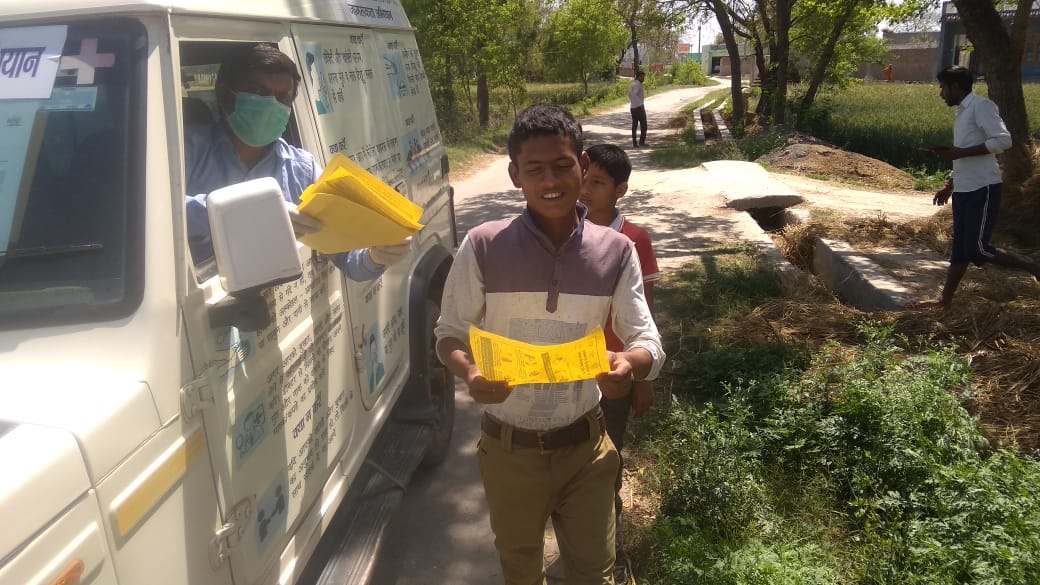 1) Awareness Program: In around 40 adjoining villages near Babrala, UP, an awareness campaign about the virus has been carried. Pamphlets pertaining to the information on COVID 19 and the importance of social distancing and maintaining hygiene in curbing the virus were distributed.
1) Awareness Program: In around 40 adjoining villages near Babrala, UP, an awareness campaign about the virus has been carried. Pamphlets pertaining to the information on COVID 19 and the importance of social distancing and maintaining hygiene in curbing the virus were distributed.
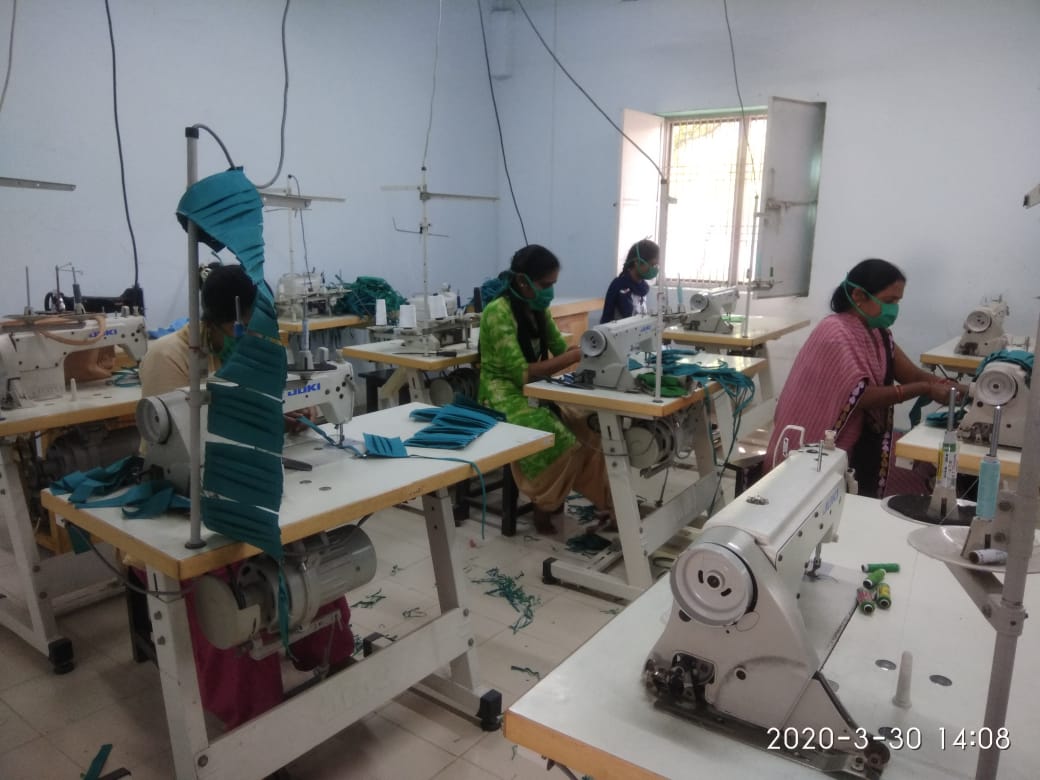 2) Production of face masks: For the safety, production of cotton cloth masks was initiated at vocational industrial stitching center with the support of the faculty and trainees.
2) Production of face masks: For the safety, production of cotton cloth masks was initiated at vocational industrial stitching center with the support of the faculty and trainees.
Apart from providing masks to the employees, they are also providing masks to Government health staffers. Till date more than around 5000 masks have been stitched.
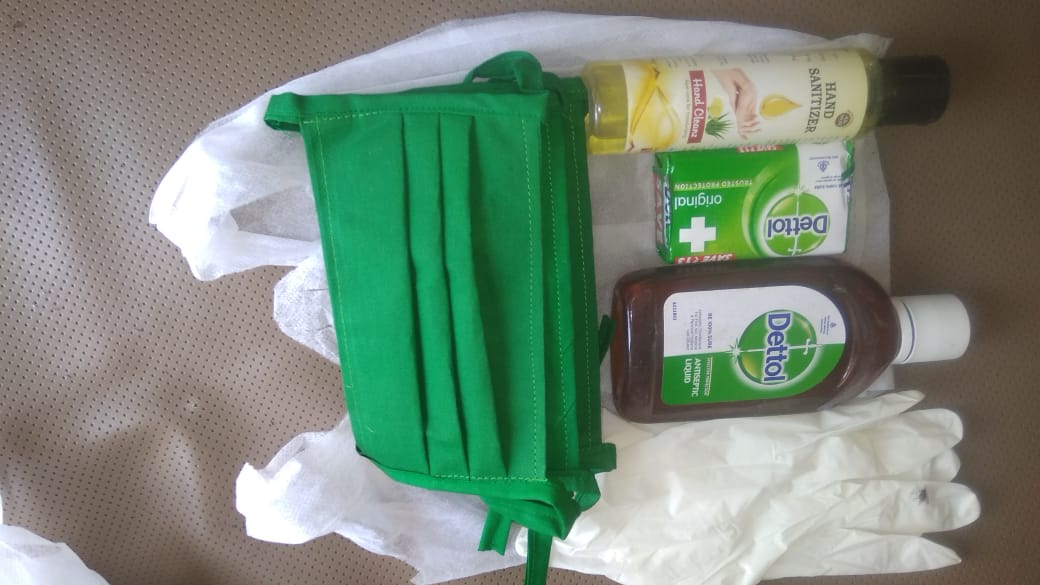
3) Health kit to Government Health Staff: Healthcare workers who at the forefront during fighting the virus are at the high risk of infection. Yara distributed health saving kits to 160 ground health care workers such as ASHA (Government health volunteers in villages) and Auxiliary Nursing Midwives (ANMs).

4) Distribution of food: Around 200 packets of food materials were handed over to the local administration for distribution among needy families. These have been distributed among the daily wage earners, migrant workers and other affected segments of the society.
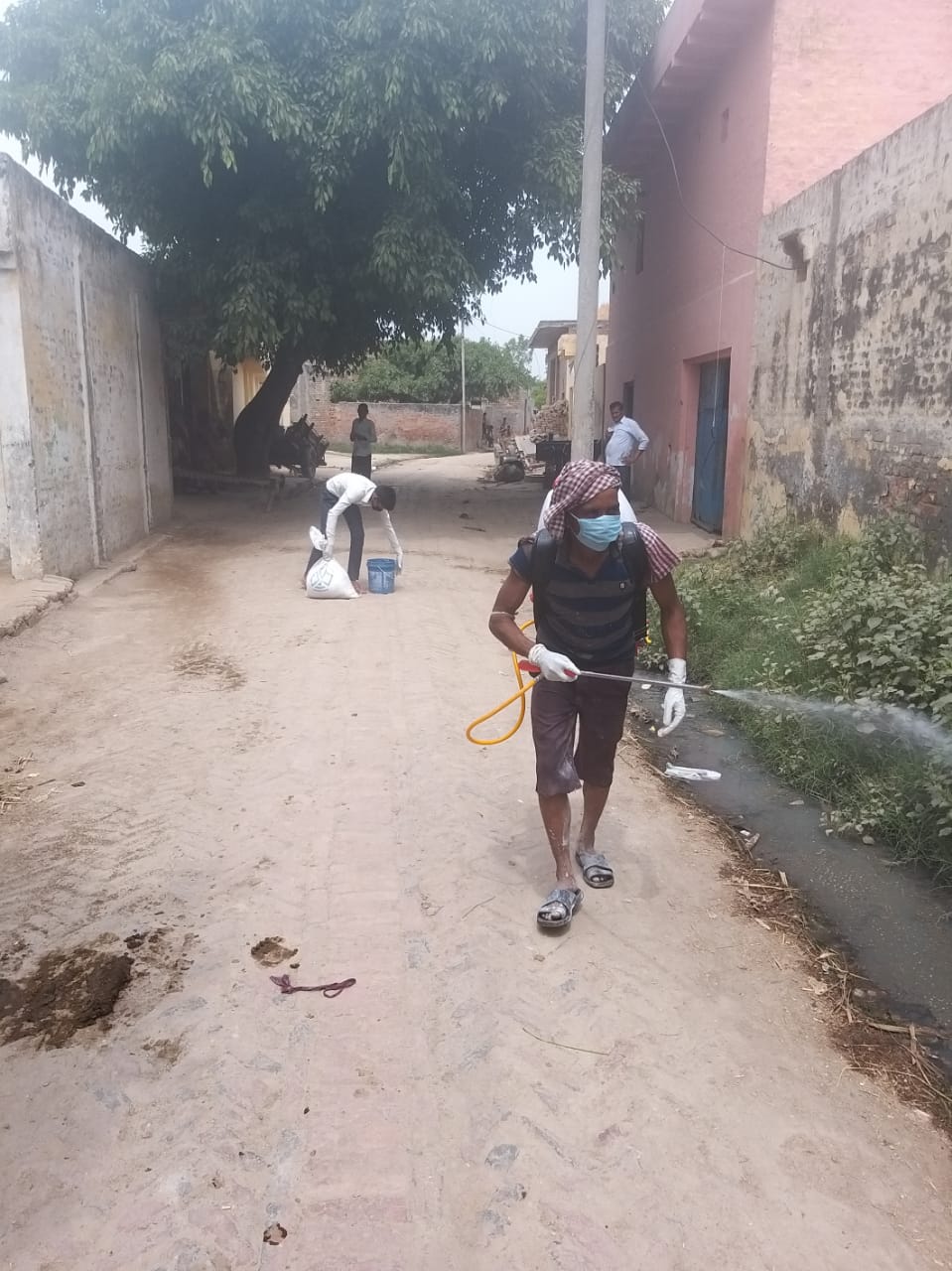 5) Decontamination in villages : As a preventive measure against the community transmission , decontamination of public places is being ensured by spraying disinfectants and bleaching powder at village level with the help local administration (Panchayats)
5) Decontamination in villages : As a preventive measure against the community transmission , decontamination of public places is being ensured by spraying disinfectants and bleaching powder at village level with the help local administration (Panchayats)

